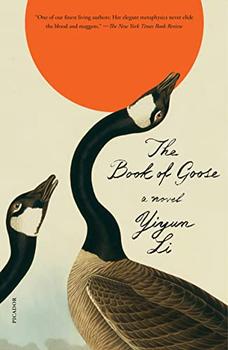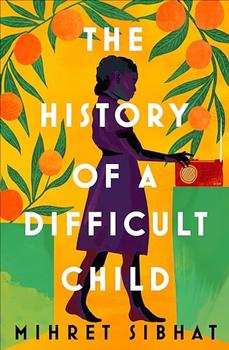Summary | Excerpt | Reviews | Beyond the book | Read-Alikes | Genres & Themes | Author Bio

A Novel
by Yiyun LiA magnificent, beguiling tale winding from the postwar rural provinces to Paris, from an English boarding school, to the quiet Pennsylvania home where a woman can live without her past, The Book of Goose is a story of disturbing intimacy and obsession, of exploitation and strength of will, by the celebrated author Yiyun Li.
Fabienne is dead. Her childhood best friend, Agnès, receives the news in America, far from the French countryside where the two girls were raised―the place that Fabienne helped Agnès escape ten years ago. Now, Agnès is free to tell her story.
As children in a war-ravaged, backwater town, they'd built a private world, invisible to everyone but themselves―until Fabienne hatched the plan that would change everything, launching Agnès on an epic trajectory through fame, fortune, and terrible loss.
The Book of Goose draws on conventional elements, but its brilliance lies in the small ways in which these elements go awry. Fabienne and Agnès themselves seek to disrupt the dull narratives their lives are pitched towards — marriage, children, death — although the grim truth that fame and adventures come with their own dull narratives soon sets in. Still, they try their best to live by their own rules. Li's novel has a lot going for it thematically, raising questions about fiction and perspective and reality, about exploitation and domination and class snobbery, all suspended distinctly in Agnès's satisfyingly rendered narration, which comes across clear, sharp and tinged with existential dread...continued
Full Review
(741 words)
This review is available to non-members for a limited time. For full access,
become a member today.
(Reviewed by Elisabeth Cook).
 In Yiyun Li's novel The Book of Goose, narrator Agnès Moreau recollects entering a surprising phase as a 14-year-old author in post-World War II France when a book that she was secretly assisted in writing by her best friend, Fabienne, became a hit and a public curiosity. Fictional Agnès describes the real-life French author Françoise Sagan as her more successful successor, rising to fame after the luster of her own stardom had begun to dull: "That year a girl named Françoise Sagan, who was four years older than me, made her name in literary history. The fame of Agnès Moreau, the peasant girl who failed to be transformed into a debutante, was no more than a twinkle of a firefly compared to the meteoric splendor of ...
In Yiyun Li's novel The Book of Goose, narrator Agnès Moreau recollects entering a surprising phase as a 14-year-old author in post-World War II France when a book that she was secretly assisted in writing by her best friend, Fabienne, became a hit and a public curiosity. Fictional Agnès describes the real-life French author Françoise Sagan as her more successful successor, rising to fame after the luster of her own stardom had begun to dull: "That year a girl named Françoise Sagan, who was four years older than me, made her name in literary history. The fame of Agnès Moreau, the peasant girl who failed to be transformed into a debutante, was no more than a twinkle of a firefly compared to the meteoric splendor of ...
This "beyond the book" feature is available to non-members for a limited time. Join today for full access.

If you liked The Book of Goose, try these:

by Yoko Ogawa
Published 2024
From the award-winning, psychologically astute author of The Memory Police, a hypnotic, introspective novel about an affluent Japanese family navigating buried secrets, and their young house guest who uncovers them.

The History of a Difficult Child
by Mihret Sibhat
Published 2024
A breathtaking, tragicomic debut novel about the indomitable child of a scorned, formerly land-owning family who must grow up in the wake of Ethiopia's socialist revolution